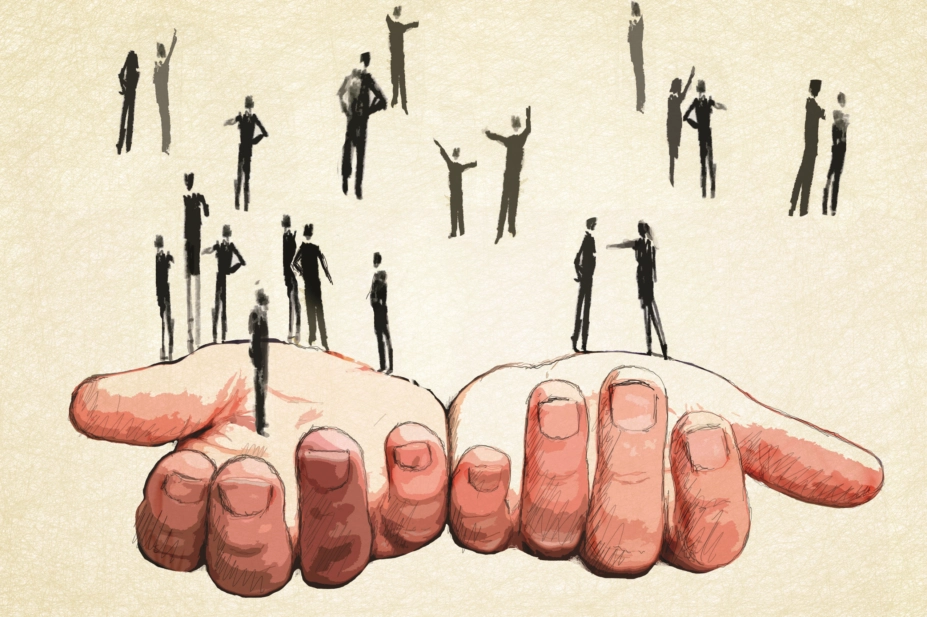
Ikon Images / Alamy Stock Photo
On 25 May 2015, Alison Stamps, a pharmacist working for Boots in County Durham took her own life. A coroner’s inquest determined that she had suffered from depression. Stamps had struggled with work stress, and like many people in her position, had been uncomfortable talking to her GP, family and her employer about her situation. Her MP Kevan Jones, used a House of Commons adjournment debate on 25 October 2017 to highlight her case. He revealed the pressures placed on pharmacists at work and called for increased mental health support and awareness in the workplace.
The scale of the problem
The number of enquiries this year to Pharmacist Support, an independent charity supporting pharmacy professionals in times of need, has increased by 37% from last year. “Enquiries on employment issues continue to be the largest area,” reveals Diane Leicester-Hallam, chief executive of Pharmacist Support.
Enquiries about employment are up 29%. Disciplinaries, bullying, terms and conditions and workplace stress accounted for 56% of all employment enquiries in October, and the charity has also received queries about return to practice, low staffing levels, lack of breaks, low rates of pay, heavy workloads, and onerous targets.
Questions from preregistration trainees are up by 57% and they make up the largest group of enquirers, with common issues including financial problems, failing the preregistration assessment and problems with a tutor.
There has also been a reported 46% increase in general enquiries related to personal issues, with callers complaining of anxiety, depression, stress and addiction.
What is stress?
Leicester-Hallam warns that we all have the capacity to perform under some level of pressure at work, but performing in this way for long periods of time, without being able to rest and recover is unhealthy. People begin to experience stress and over time feel overwhelmed and exhausted.
When a person experiences stress, their bodies and the way they act and feel begin to change. These may be warning signs that someone is under too much emotional and mental pressure. The changes can be behavioural, emotional or physical (see Box 1). Some people will experience a combination of these but for others the signs and symptoms will fall largely under one of these themes which can feel intense and worsen over time.
Lack of control over your job and available resources is associated with increased stress levels. Stressed individuals can become anxious and depressed, and in extreme cases experience burnout and/or become suicidal. One of the worst symptoms of burnout is depersonalisation of colleagues and patients. Joanna Goodrich, Head of Evidence and Learning at the Point of Care Foundation, a charity supporting patients and health professionals, says “In extreme cases cruelty to patients may occur with loss of empathy and/or compassion.”

Courtesy of Joanna Goodrich
‘Reflection, processing and talking through issues is important’, says Joanna Goodrich, Head of evidence and learning at the Point of Care Foundation
“Often stress and pressure can creep up on individuals without them realising it. It is important that pharmacy professionals are aware of how they can increase personal resilience and wellbeing,” warns Robbie Turner, a trustee of Pharmacist Support and also director for England at the Royal Pharmaceutical Society.
Box 1: Common signs and symptoms of stress
Behavioural
- Difficulty getting to sleep and early morning waking
- Drinking and smoking more
- Lack of appetite
- Restlessness and feeling unable to settle
- Difficulty concentrating
Emotional
- Loss of interest in other people
- Aggresive outbursts
- Feeling anxious for no reason
- Crying uncontrollably
- Loss of interest in the things you used to enjoy doing
Physical
- Headaches or migraines
- Digestion problems
- Skin rashes and irritations
- Tendency to sweat
- Recurring illness
Students and preregistration trainees
The stress experienced by students and preregistration trainees is different to that experienced by qualified staff. Students and preregistration trainees are also under pressure to do well in exams, apply for preregistration training posts and post registration employment, juggle work, study and the stress of repaying student loans. Individuals are often in a new environment away from home and university support networks.
Stephen Messham, British Pharmaceutical Students Association (BPSA) president and student representative, also reports there being mounting anxiety over the perceived lack of jobs for pharmacists. Messham admits, “There is very little information around mental health in the MPharm or preregistration year. There is no highlighting of potential issues students and trainees may face or where to go for help.” Pharmacy schools offer little dedicated mental health support outside of the wider university support services, and the pastoral support available to students during preregistration training varies widely between providers.

Source: Courtesy of Stephen Messham
Stephen Messham, British Pharmaceutical Students Association (BPSA) president and student representative, admits: ‘There is very little information around mental health in the MPharm or preregistration year.’
Goodrich advises that universities start to address this issue by ensuring self care is covered in the pharmacy curriculum.
What can be done?
“Talking to someone is a great first step,” Leicester-Hallam says, “that could be someone at work or university — if you feel comfortable doing so. Some people prefer, however, to speak to a person not related to the situation, independent from their workplace. This could be a friend or relative or perhaps one of Pharmacist Support’s Listening Friends — trained volunteer pharmacists, who understand the pressures of the job and provide callers with a confidential listening ear.”

Courtesy of Diane Leicester-Hallam
‘The signs and symptoms of stress can be intense and often worsen over time,’ says Diane Leicester-Hallam, chief executive of Pharmacist Support
Talking alone may not resolve the issue, but it can be a first step in identifying the options available to address the problem, she says.
It may be that things at work need to change to reduce the levels of stress being experienced. If it is necessary to speak to a manager, using a solution-focused approach to maintain a positive working relationship is advised. “Talk about steps already taken to make a difference and think about who else on the team may be able to help,” says Leicester-Hallam.
While self managing stress can work well initially, additional help and support may eventually be necessary.
Sources of support
Several charities have specific programmes to help students, trainees, pharmacists and other healthcare staff manage their own self care.
Pharmacist Support runs wellbeing courses for pharmacists, preregistration trainees and students using its Wardley legacy. The workshops are packed with information, tools and techniques to help attendees recognise the signs and symptoms of stress and deal with everyday pressures.
Attending such workshops also has benefits for the care provided to patients. “Having an awareness of our own mental health helps us feel more empathetic for the patients that we serve. Pharmacists are better able to relate to and support the public and patients,” Turner emphasises.

Source: MAG / The Pharmaceutical Journal
“Everyone is an individual and we need to make sure that we are supporting people in a way that is responsive to their individual needs,” emphasises Robbie Turner, Pharmacist Support trustee and director for England at the Royal Pharmaceutical Society
Another charity, The Point of Care Foundation, helps organisations run Schwartz rounds, where healthcare staff, both clinical and non-clinical, meet once a month to reflect on challenges at work. Individuals present a case and talk about the personal, ethical and professional impact it has had. “What we are advocating is group reflection. By processing your emotions and feelings in a group you get support from the group,” says Goodrich.
An NIHR evaluation released in October found that staff attending the rounds regularly experienced a significant reduction in psychological distress. Individuals are often surprised to find that both junior and senior attendees experience the same feelings.
However, life, work and study throw up a host of stressors which can affect people in different ways. Turner highlights, “Everyone is an individual and we need to make sure that we are supporting people in a way that is responsive to their individual needs.”
Next steps
MPs discussing Alison Stamps’s death agreed that more needs to be done, particularly by employers and professional bodies, to support pharmacists struggling with stress and mental health issues. “There is scope for professional bodies to recognise the importance of supporting individuals to look after their mental health, wellbeing and resilience,” says Goodrich. A lot of trusts have staff wellbeing strategies that are predominantly aimed at doctors, nurses and healthcare assistants. Pharmacists are usually able to access some of them.
Turner says having a confidential charity is important. Although a lot of work is being done to reduce the stigma around mental health issues, it still persists.
While many independent, confidential schemes have been set up to target stressed doctors, pharmacists are only able to access some of the bigger schemes such as the NHS Practitioner Health Programme, Leicester-Hallam says.
Some of these schemes receive central funding, however most of Pharmacist Support’s funding comes from pharmacists, particularly legacies. Last year it received its first corporate donation from Boots. Funding is always a challenge for the benevolent charities of professions, Turner says, because only “a limited group of people will feel passionately enough to donate”.
What is needed going forward, he says, is a greater focus from employers, commissioners and national organisations on the impact of stress in pharmacy and greater destigmatisation of mental health issues. Individuals need to feel free to discuss issues without fear of jeopardising their career or employment. “If we can start to do that and enable people to ask for help, we can get a better idea of where the issues are and how to address them,” states Turner.
Useful information:
- Pharmacist Support
If you are in need of advice or support, or for more information please visit www.pharmacistsupport.org or contact 0808 168 2233; info@pharmacistsupport.org.
Those seeking assistance may also contact the charity via LiveChat or via their social media pages on Twitter, Facebook, Instagram and LinkedIn.
Reading this article counts towards your CPD
You can use the following forms to record your learning and action points from this article from Pharmaceutical Journal Publications.
Your CPD module results are stored against your account here at The Pharmaceutical Journal. You must be registered and logged into the site to do this. To review your module results, go to the ‘My Account’ tab and then ‘My CPD’.
Any training, learning or development activities that you undertake for CPD can also be recorded as evidence as part of your RPS Faculty practice-based portfolio when preparing for Faculty membership. To start your RPS Faculty journey today, access the portfolio and tools at www.rpharms.com/Faculty
If your learning was planned in advance, please click:
If your learning was spontaneous, please click:



